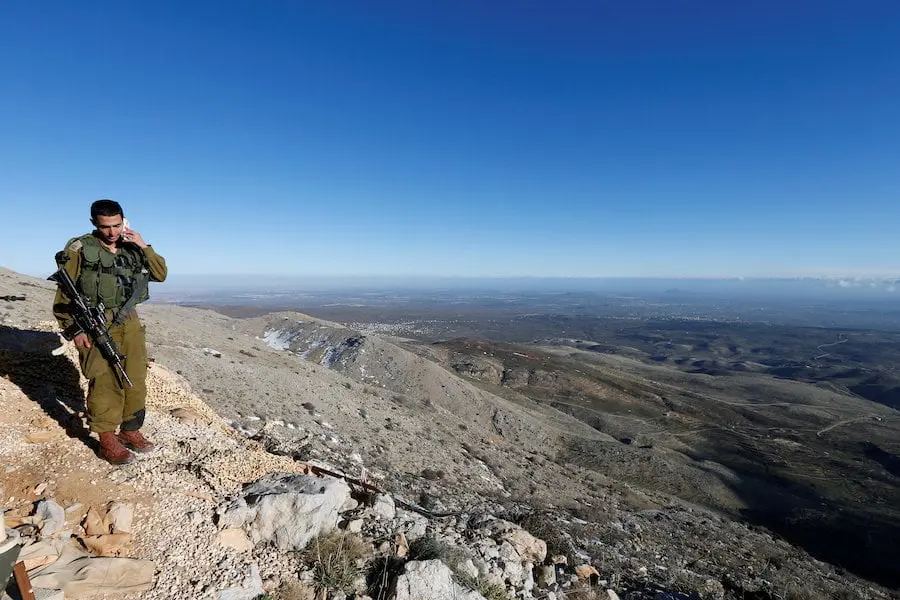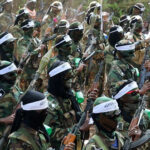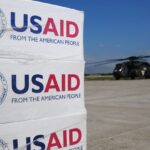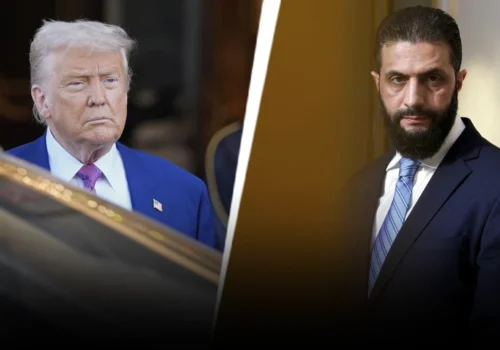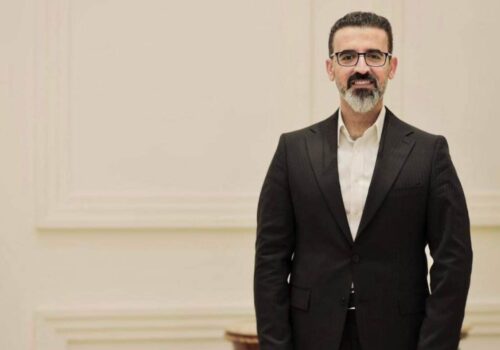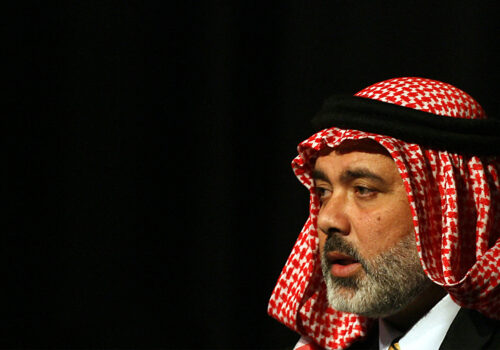On November 27, almost no one could have predicted where the opposition offensive from Idlib towards Aleppo would lead. The unexpected happened. The opposition captured Aleppo with a big surprise. While the world only watched what was happening in Syria with astonishment, the armed groups advanced first to Hama and then to Homs. With this momentum, Bashar Al-Assad fled the country and the regime came to an end on December 8.
The Changes in Syria, one of the world’s most geopolitically important locations, has caught many major powers off guard. Iran and Russia, hitherto considered to be on the losing side, accepted defeat after Doha talks and expressed their willingness to cooperate with the new government in Damascus. Russia even announced that it was in talks with the HTS-linked authority to maintain its military presence in Tartus and Khmeimim. In the U.S, there was a talk of removing HTS from the terror list, a constituent element of the new government. A similar voice also echoed in London.
In Turkey, which has hosted millions of Syrians for more than a decade, maintained close ties with the Syrian opposition, and acted as the guarantor for HTS-controlled Idlib as part of the Astana process, there was a sense of triumph. It was congratulated at the highest level by President Erdoğan himself. At the same time, Turkey’s intelligence chief İbrahim Kalın prayed at the Umayyad Mosque, which has now become an important object of political debate in Turkey, and Kalin even traveled in a black car driven by Jolani to the prayer.
While all this was happening, Israel, which since October 7 2023, has been carrying bloody attacks and even genocidal acts in Gaza, West Bank and Lebanon, was also caught off guard by the events unfolding right next to its borders. Nevertheless, Israel has been one of the quickest to brace the shock and respond to the changes in Syria.
As soon as Damascus fell, Israeli planes began bombing critical facilities and weapons left by the former regime in Syria. Even the remnants of the navy in Latakia have been destroyed. On Sunday, in order to prevent any negative consequences off the fall of the Assad regime on Israel, the IDF entered Syrian territory for the first time since 1974 and captured Hermon on the Syrian side of the Golan.
Reading the events in Syria through Israeli media
In the Israeli press, both what is happening in Syria and the Israeli government’s reaction to these events have received widespread coverage.
For instance, Israeli military officers were quoted in the press as saying that the strategic position of the Syrian side of the Golan Heights is the highest point on the eastern shore of the Mediterranean Sea and its summit overlooks Syria and Lebanon.
It was also reported in the media that as result of events that took place on October 7, 2023, when Hamas fighters left the Gaza Strip on motorcycles in small groups and crossed the Western Negev, Israeli Army has taken its lessons and took measures in the Golan to prevent any such event from happening by laying mines and digging deep trenches in the area.
Prime Minister Netenyahu stated that, IDF’s seizure of the Syrian side of the Mount Hermon and its entry to the demilitarized zone on the Golan Heights was aimed at ensuring Israel’s security, and these words prompted criticism from the Israeli opposition that the invasion would open a new front rather than providing security. The left-wing Haaretz newspaper, known for its opposition to Netenyahu, argued that the fall of the Assad was sufficient for the time being if the Israel’s security is the matter, while the IDF is still fighting a war in Gaza, and that the occupation of the Golan and the Hermon region was merely a risky step towards realizing the far-right’s dream of territorial expansion of Israel.
Israel’s strikes on Syrian chemical and advanced weapons facilities, destroying 80% of Syria’s military infrastructure in order to prevent them from falling in to the hands of the opposition, which Israel sees as a potential threat, is supported by Israeli opposition, while crossing the Syrian border is criticized as it would lead to greater dangers.
The conflicting Syria, which resumed immediately after Israel signed a ceasefire with Hezbollah, was also evaluated from this perspective in Israel.
After October 7 attacks, Israel was criticized by its allies and enemies alike to limit its attacks on Iranian-backed groups in order not to provoke a regional war. However, especially after the end of the war in Gaza, Israel returned to Lebanon, where it inflicted significant damage on Hezbollah. Many senior Hezbollah officers, including the organization’s leader Hassan Nasrallah, were killed. And even Hezbollah commanders were targeted with explosives loaded on messaging devices. After these attacks, Hezbollah was significantly weakened. Its logistical and communication capabilities were virtually nullified. It has been paralyzed and its very existence in Lebanon has become doubtful, hence the organization’s intervention in Syria has been limited.
Citing these developments, Israeli officials say that Israeli strikes against Iran and its allies over the past year have been crucial to the opposition’s victory in Syria, and that without their heavy blows against Iran and Hezbollah, the Syrian opposition would not have dared to fight against Assad.
Also in the context of October 7 attacks, Israeli officials believe that Hamas’ aim to change map of the Middle East has finally been achieved, but hte map has changed in Israel’s favor.
The Israeli press has long been preoccupied with the haste with which a ceasefire with Hezbollah in Lebanon was concluded while a ceasefire with Hamas was delayed despite the risk of killing the hostages in Gaza.
In the days of regime change in Syria, the limitation of Hezbollah’s room for maneuver with the ceasefire seems to have enabled Israel to carry out its activities on the Golan with ease, this gives a sight of relief to the government, which has been subjected to serious criticism over both the hostages in Gaza and the effects of the war on the country.
What does Tel Aviv expect?
Former Israeli Defense Minister Benny Gantz says that while it is unclear how Iran will respond to this defeat, Tehran regime is now more dangerous than ever and a nuclear weapons solution is not far away.
Moreover, Tel Aviv has issued similar warnings to Damascus in the past, according to the documents revealed after Assad’s fall. As such, the Assad regime was threatened that it would “pay an unprecedented price” if it insisted on not preventing Hamas-affiliated groups from launching missile attacks on Israel from Golan region.
On the other hand, right next to Israel, there is now an internal conflict won by an organization that has split from Al-Qaeda, and a government established by such an organization. For many, the situation is more serious than now weakened Iran, many more kilometers away. The biggest question mark is now how to deal with the new government in Damascus.
Speaking on the subject, Prime Minister Netenyahu made it clear that they have no intention of interfering in Syria’s internal affairs and that they want to establish relations with the new government, but that if they allow Iran to return to Syria, supply arms to Hezbollah or allow Palestinian groups to attack Israel, they will end up the same as the Assad regime. It is clear from Netanyahu’s message that, at least at this stage, Tehran is still perceived as the source of threats to the Israel rather than the new government in Damascus.
Although the new government has not yet taken shape fully, the Israeli authorities seem confident that HTS, which is expected to have the most say in the future of Syria, will at least ensure that Iran will not supply arms to Hezbollah through Syria. HTS leader Jolani’s statement that “the Assad regime has turned Syria into a farm for greedy Iran” is a positive sign for decision makers in Tel Aviv.
However, the fact that HTS is an Islamic group with no sympathy for Israel worries Israeli officials. In addition, Turkey, the main supporter of the Syrian opposition, has taken a tough stance against Israel’s actions in Gaza, which makes Israel uncomfortable with the prospect of a Turkish-backed government on its northern border.
Golan, from past to the future
The Golan Heights were occupied by Israel during the Six Days War in 1967, and in 1981 Israel officially announced that it had annexed the area and opened it to the settlement.
While Israeli sovereignty in the Golan was not recognized by many for a long time, U.S President Trump announced in 2019 that he is considering the Golan as Israeli territtory in addition to recognizing Jerusalem as the capital of Israel.
This week, Prime Minister Netenyahu thanked US President Trump and said that Golan Heights will forever be an integral part of Israel. Netenyahu said that in light of the latest developments in Syria, the importance of the Golan has once again become clear and the annexation was justified.
The Israel Defense Forces, on the other hand, stated that their aim was not to declare a sovereignty in the buffer zone but to control the area until the instability in Syria subsides. Yet, Israeli Defense Minister Katz was quoted in the press as ordering soldiers to be ready to remain on the Syrian side of the Mount Hermon during the coming winter months. Israeli analysts say that no change in the Middle East will be temporary and that this is only a rhetoric used to calm down the international public and that Israel can be permanent in the newly occupied territories.
The Druze population in the region is also sympathetic to Israel and would prefer to live under Israeli sovereignty rather than Syria, which is in ruins after a decade of civil conflict. In a video circulated in the Israeli media, Druze living on the Syrian border say that they would prefer to be annexed to Israel, choosing the lesser of two evils, rather than be under the rule of a “jihadist-led” Syrian government.
It is also possible that Israel may seek to establish a permanent presence on the Syrian side of the Golan through the annexation of four Druze villages that came under Israeli control with the Israeli occupation of the Golan Heights.

